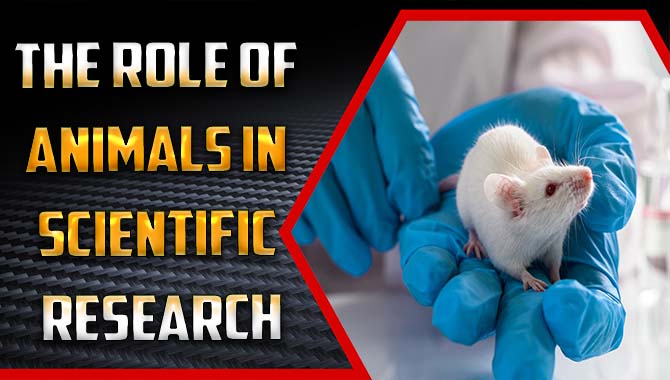Animal research has long been debated and scrutinized, raising questions about its ethical implications and scientific validity. The pros and cons of animal research in the context of breed development and pet ownership present a complex and multifaceted discussion.
On the one hand, animal research has been instrumental in advancing breeding techniques. It also includes genetic improvement and disease prevention in animals. And it leads to the development of healthier and more resilient breeds.
It has also enhanced our understanding of animal behavior, allowing breeders to create breeds with desirable temperaments. Additionally, animal research has contributed to developing reproductive techniques, tailored training methods, and effective pet medication.
However, concerns surrounding animal welfare, ethical considerations, limitations in generalizability, and the potential for harm cannot be overlooked. Careful consideration of the pros and cons is necessary to ensure responsible and ethical practices in animal research, striking a balance between scientific progress and animal well-being.

What Do You Understand By Animal Research?

Animal research for breed developers and pet owners involves the study of animal genetics, behavior, and health to create and improve specific breeds for domestication. This research helps breeders understand the genetic makeup of animals, their behavior patterns, and any potential health issues they may face.
By studying animal behavior and health, breed developers and pet owners can make informed decisions about breeding practices, diet, and healthcare. Additionally, animal research provides insight into developing new therapies and treatments for animal diseases, ultimately improving the health and well-being of pets and their owners.
Breed Developers And Pet Owners Should Know The Pros And Cons Of Animal Research.

Both breed developers and pet owners should be aware of the benefits and limitations of animal research in order to make informed decisions about their animals’ health and care. However, it is important to also consider the ethical implications of animal research and to prioritize the well-being of the animals involved.
By understanding the role of animal research, breed developers and pet owners can make informed decisions to improve the lives of their animals. Here is a step-by-step explanation of the pros and cons of animal research:
Pors Of Animal Research

Animal research plays an essential role in breed development and pet care. Through research, scientists gain insights into animal behavior, genetics, and physiology that aid in the development of new breeds and the improvement of existing ones.
Additionally, animal research helps in the discovery and testing of medications, treatments, and vaccines that enhance the health and well-being of pets.
Advancement In Animal Breeding Techniques Through Research

Animal research has led to significant advancements in breeding techniques, such as artificial insemination, embryo transfer, and genetic engineering. These techniques enable breeders to select desired traits, enhance genetic diversity, and improve the overall quality of breeds. Research plays a crucial role in developing innovative methods that ensure efficient and effective breeding practices for the benefit of breeders and pet owners.
Enhanced Understanding Of Animal Behavior And Temperament
Through extensive research, a deeper understanding of animal behavior and temperament has been gained. Studies have elucidated how genetics, environment, and social interactions influence behavior in different breeds.
This knowledge helps breeders develop breeds with desirable behavioral traits, ensuring compatibility with owners’ lifestyles. Pet owners benefit from this understanding by being able to provide appropriate training, enrichment, and care that aligns with their pets’ specific behavioral needs.
Research For Breeds Suitable For Specific Purposes (Service Dogs)
Animal research plays a crucial role in identifying and developing breeds suitable for specific purposes, such as service dogs. Through extensive studies, researchers evaluate breeds for traits like intelligence, temperament, and trainability.
Ensuring they excel in tasks like mobility assistance, guide work, or therapy. This research enables breeders and pet owners to make informed decisions, resulting in highly trained and reliable service dogs that enhance the lives of individuals with disabilities.
Tailored Training And Behavioral Modification Techniques
Animal research contributes to the development of tailored training and behavioral modification techniques that effectively address behavioral issues in pets. Through scientific studies, researchers identify effective methods.
Such as positive reinforcement and desensitization, to modify undesirable behaviors and promote positive ones. This research helps pet owners and trainers employ evidence-based strategies that enhance the well-being and behavior of their pets, leading to harmonious human-animal relationships.
Development Of Healthier And More Resilient Breeds
Animal research has played a pivotal role in the development of healthier and more resilient breeds. Through careful breeding and genetic studies, researchers have been able to identify and eliminate inherited diseases, improving overall breed health. This research ensures that pet owners can enjoy the companionship of robust and thriving animals.
Improved Lifespan And Quality Of Life For Pets

Animal research has contributed to extending the lifespan and enhancing the quality of life for pets. By studying factors like nutrition, exercise, and preventive care, researchers have developed guidelines that promote longevity and well-being. Through this research, pet owners can provide their beloved animals with a longer, happier, and healthier life.
Animal Research And Animal Training

Animal research has significantly informed the field of animal training. Studies have helped trainers understand the cognitive abilities, learning processes, and social dynamics of different species.
This knowledge allows for the development of effective training techniques that enhance communication, obedience, and cooperation between animals and their trainers. Improving training outcomes and strengthening the human-animal bond.
Enhanced Reproductive Techniques And Fertility
Animal research has revolutionized reproductive techniques and fertility management in animals. Researchers have developed assisted reproductive technologies like in vitro fertilization, embryo transfer, and semen preservation, enabling breeders to enhance breeding success rates, preserve valuable genetics, and overcome reproductive challenges. This research has opened new possibilities for breeders in achieving their breeding goals and maintaining genetic diversity.
Evaluation Of Nutritional Requirements And Diet Optimization
Animal research plays a vital role in evaluating the nutritional needs of different breeds and species, leading to diet optimization. Through controlled studies, researchers assess the impact of various nutrients on growth, metabolism, and overall health.
This research enables pet owners to provide well-balanced diets that meet their pets’ specific nutritional requirements, promoting optimal health and vitality.
Identification And Management Of Environmental Sensitivities
Animal research has helped in identifying and managing environmental sensitivities in pets. Through controlled exposure studies, researchers have identified triggers for allergies, sensitivities, and intolerances.
This knowledge allows pet owners to create safe and supportive environments, and avoid allergens. And implement management strategies that alleviate discomfort and improve the well-being of their pets.
Understanding Of Zoonotic Diseases And Transmission Prevention
Animal research has contributed significantly to our understanding of zoonotic diseases, which can be transmitted between animals and humans. Researchers study the epidemiology, transmission routes, and prevention methods for diseases like rabies, influenza, and Lyme disease. This research helps in developing effective prevention strategies. Such as vaccinations and public health measures, safeguarding both pets and their owners.
Development Of Safe And Effective Medications For Pets

Animal research has been instrumental in developing safe and effective medications for pets. Studies involving animals help researchers assess medications’ efficacy, dosage, and potential side effects, ensuring their safety before being administered to pets. This research allows veterinarians to prescribe appropriate treatments, manage diseases, and alleviate suffering in pets, ultimately improving their health outcomes.
Enhanced Understanding Of Aging And Geriatric Care In Pets
Animal research has deepened our understanding of aging and geriatric care in pets. Through longitudinal studies, researchers examine the physiological changes, age-related diseases, and cognitive decline in aging animals. This knowledge enables veterinarians and pet owners to implement tailored healthcare, preventive measures. And enriching interventions that promote healthy aging, improve quality of life, and support the unique needs of senior pets.
Cons Of Animal Research

The use of animals in research for breed development and pet care has long been a topic of controversy. While some argue that it is necessary for scientific advancements and animal health betterment, others believe it is cruel and unnecessary.
The debate centers around the ethical considerations of using animals for research purposes and the effectiveness of such research. Despite the controversy, animal research remains a common practice in the pet care industry.
With many companies relying on it to develop new products and treatments. As the debate continues, it is important for individuals to educate themselves on the issue and make informed decisions about their consumption and support of animal-based products and research.
Ethical concerns: Animal research involves using living creatures for scientific purposes, which raises ethical concerns about the treatment of animals. Some argue that it is cruel to subject animals to experimentation and violates their rights.
Inaccurate results: Animals may not always be good models for human diseases and conditions, and findings from animal studies may not necessarily translate to human beings. Thus, research on animals may not always produce accurate or reliable results.
High costs: Animal research can be expensive. It involves the care and housing of many animals and the cost of conducting experiments. This can be a significant burden on research institutions and government agencies.
Which Organization Conducts Regular Research On Pets?
Numerous organizations conduct regular research on pets worldwide. Some prominent examples include universities with veterinary and animal science programs. Government agencies like the National Institutes of Health (NIH) and the United States Department of Agriculture (USDA), veterinary pharmaceutical companies.
And animal welfare organizations such as the American Society for the Prevention of Cruelty to Animals (ASPCA). And research institutions dedicated to animal health and well-being include the Morris Animal Foundation and the WALTHAM Centre for Pet Nutrition. These organizations strive to advance knowledge and improve the lives of pets through scientific research.
How Does It Help Understand Animal Behavior And Physiology?
Animal research plays a vital role in helping us understand animal behavior and physiology. By studying animals in controlled environments, researchers can observe and measure various aspects of their behavior and physical functions.
This information can then be used to draw conclusions about how animals behave and function in their natural habitats. Additionally, animal research can help us to develop new treatments and therapies for human diseases and conditions, as many physiological processes are similar across species.
How It Helps In Advancing Scientific Knowledge

It allows scientists to study and understand biological processes that can’t be studied in humans, such as the development of diseases and the effects of new treatments.
Animal studies provide valuable insights into the safety and efficacy of new drugs, vaccines, and medical devices before they are tested in humans. Animal research also helps to develop new surgical techniques and therapies that improve human health. However, ensuring that animal research is conducted ethically and with the utmost care for the animals involved is essential.
Conclusion
The pros and cons of animal research for breed developers and pet owners present a complex and challenging landscape. The importance of animal research in advancing breeding techniques, genetic improvement, and disease prevention cannot be denied.
It has provided invaluable insights into animal behavior, leading to the development of breeds with desirable temperaments and enhancing the quality of pet ownership.
Additionally, animal research has contributed to reproductive advancements, tailored training methods, and the development of safe medications for pets. However, ethical concerns, animal welfare considerations, and limitations in generalizability remain significant challenges.
It is crucial to approach animal research with sensitivity, ensuring the well-being of animals while striving for scientific progress. Striking a balance between animal research’s benefits and potential drawbacks is essential for breeds’ responsible and ethical development and the betterment of pet care practices.
FAQs
1.How Does Animal Research Impact The Development Of New Breeds?
Ans: Animal research can provide valuable insights into genetic traits and health issues that can inform the development of new breeds with specific desired characteristics.
2.What Are The Potential Risks Of Relying On Animal Research For Breed Development?
Ans: Relying solely on animal research to develop new breeds can lead to a narrow focus on certain traits or characteristics, potentially overlooking other important factors like temperament, behaviour, and overall health.
3.How Does Animal Research Inform Pet Care And Treatment?
Ans: Animal research can inform the development of new treatments and medications for pets, as well as provide insights into general care and nutrition.
4.What Are The Limitations Of Animal Research In Informing Pet Care And Treatment?
Ans: Animal research may not always accurately predict outcomes for individual pets, and results may not be generalizable to all breeds or species.
5.How Do Ethical Concerns Around Animal Research Impact Breed Developers And Pet Owners?
Ans: Ethical concerns around animal research can impact the public perception of breed developers and pet owners who rely on animal testing, potentially leading to negative associations and public backlash.

Aquarium passion is all about connecting with the aquatic life and providing education to the public on the importance of these creatures. We showcase a wide variety of marine life through our exhibits as well as working with schools to provide unique learning opportunities for students of all ages.









